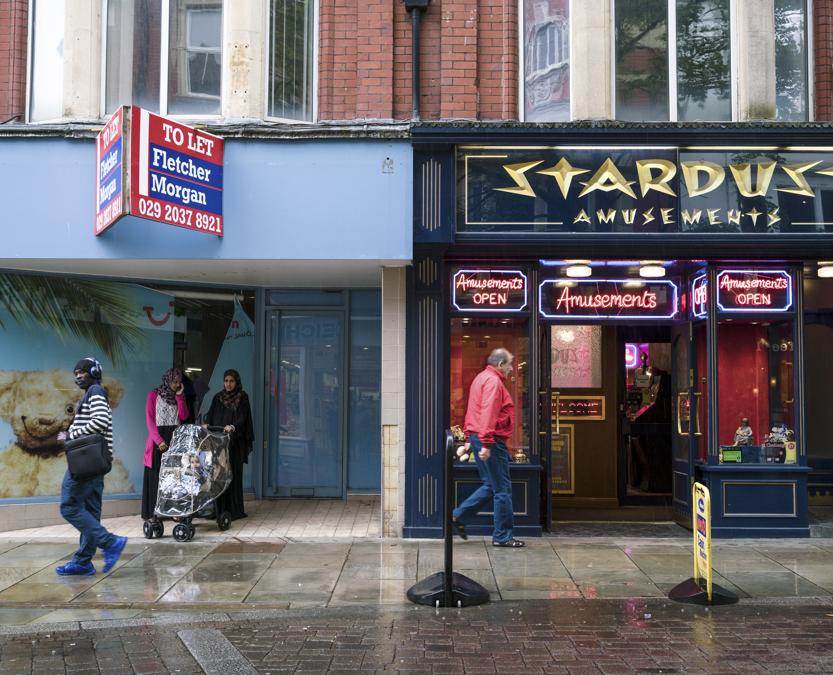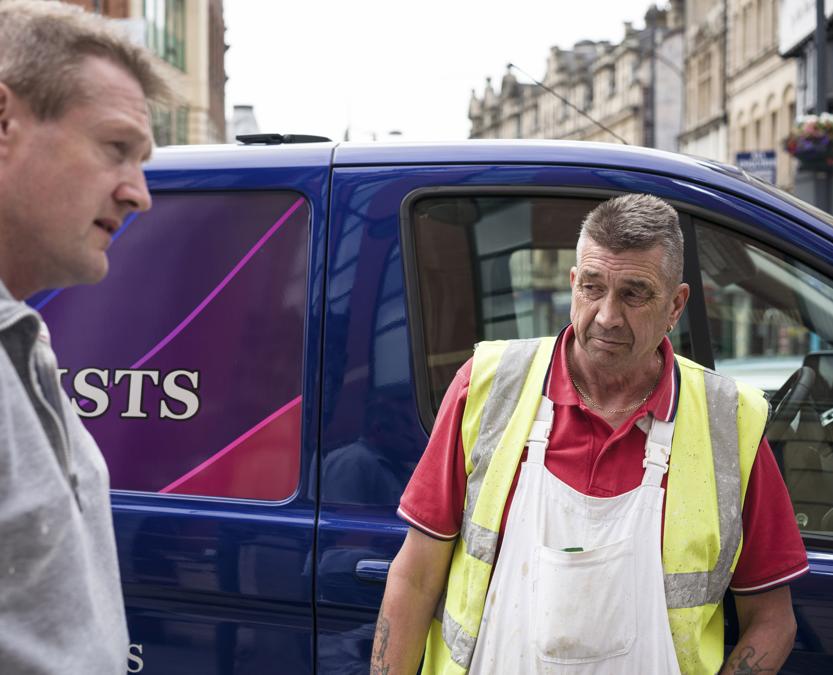

NEWPORT, Wales — David Adams co-owns a painting business here. His leanings in the recent referendum to leave the European Union would seem obvious.
Grants from the EU have funded many of the projects he works on, including the former bank branch he was painting last week in this city in southern Wales. EU funds also helped him hire apprentices, including his son. And Wales gets back far more money from the EU than it pays in.
But many of the poorer places in Britain that receive the most aid from Europe also voted decisively to leave. Promises were made by the leaders of the so-called Leave campaign that exiting the European Union would lead to a bonanza of money no longer being sent to Brussels, the seat of the European government. After the vote, they almost immediately retreated from those promises, leaving the future of aid programs funded by Europe in peril.
Even some in Newport who knew what they stood to lose were conflicted over the vote.
“We get more back than we put in,’’ said Adams, 52, leaning against his van in spattered white work pants. “What the money has done is made the infrastructure of Wales much better, everywhere’s much more accessible because of the road infrastructure, things like that. That’s where all the EU money’s gone.’’
Even so, he said he could not bring himself to support staying in the union and chose not to vote, because the immigration issue held him back. “At the end of the day, we’re an island,’’ he explained. “We can take only so much population.’’
One of the looming questions after the “Brexit’’ vote is what happens to the money flowing into places like Wales. Nearly $400 million in multiyear apprenticeship funding programs alone are underway, among a 60-page list of European projects earmarked for Wales stretching to 2020. Another program, with a budget of more than $180 million, helps start new small businesses and finance existing ones. Others fund a range of programs including advancing women’s opportunities and projects on college campuses.
Even so, 56 percent of voters in Newport voted to leave. One of the Leave movement’s core arguments was that Britain could keep money it now pays to Europe and use it for its own purposes.
Boris Johnson, the former London mayor who was one of the campaign’s most visible leaders, even rode around on a bus with the false claim that Britain pays Europe 350 million pounds a week painted on its side. It’s more like 150 million pounds ($167 million) a week, according to the Institute for Fiscal Studies. The maneuver led comedian John Oliver to refer to Johnson as “a man with both the look, and the economic insight, of Bamm-Bamm from the Flintstones.’’
Britain as a whole paid about $9.5 billion more annually into the EU than it got back over the last half-decade, according to the British treasury. After it leaves, it most likely will still have to pay money into the union to keep its trading privileges. And the aid coming back will cease.
Many in the British Parliament insist on keeping some kind of access to the so-called single market, the European system of rules and laws that seek to make trading among member states more seamless. But some vying to be the next prime minister have suggested Britain could operate outside the single market, though that could throw up myriad barriers to trade.
But keeping access as an outsider costs money, as it does for nonmember states like Norway and Switzerland. Norway pays about 40 percent more per capita to gain access to the single market than Britain does now, according to data from the European Commission. A study by the House of Commons Library, which excluded European aid to private institutions like universities and businesses, found that Norway paid 17 percent less than Britain.
Either way, Britain is unlikely to get more favorable terms than it already has. Part of the problem is that Norway and Switzerland are part of the Schengen Area, a passport-free travel zone. This kind of unfettered movement is exactly what many Leave voters detest.
European leaders, hardly in a charitable mood, seem unlikely to do favors.
“There will be no single market à la carte,’’ Donald Tusk, the European Council president, said this week, while Jean-Claude Juncker, the president of the European Commission, said that access to the single market was contingent on basic principles including the free movement of people.
Wales is one of the four nations that make up Britain, but the only one besides England to support a European exit. To outsiders, differences between Wales and England can seem subtle, beyond the Welsh language that accompanies English on its signs and its red dragon flag.
Wales has lagged economically. Newport’s economic struggles were visible downtown, part of the reason it has been a recipient of so much aid. One pub advertised “all pints’’ for 1.99 pounds, and there were a number of vacant storefronts, as well as a proliferation of charity stores, including one selling everything for 1 pound. A curtain store asked passers-by to sign a petition to help fight an eviction notice.
During a visit, it did not take long to determine the Leave campaign’s appeal for a number of residents.
“I’m definitely not a racist,’’ said Thomas Reynolds, an 88-year-old retired construction worker. But he said he was “delighted’’ by the outcome. “Muslims don’t like Christians. I don’t want Muslims next to me, I prefer Christian. But they probably would think the same, so we’re on the same page.’’
But this was hardly a reflection of the whole city.
“I’m disgusted that we voted out,’’ said Hilary Small, 67, a retired medical secretary. Many voters, she said, simply were uninformed about the money the EU sends to the region.
“A lot of the Welsh people didn’t realize that,’’ she said.
Russell Thomas, Adams’s partner in the painting business, did vote to stay in the union.
“A lot of the subsidies now, we think, will be stopped,’’ he said. “It’s a devastating blow I think, but there we are.’’



